THE PINE SQUIRREL CRAWFISH
There are lots of crayfish patterns (a quick check of the FOTW archives found at least 6 crawfish patterns), and this is understandable when you consider how important this freshwater crustacean is to the diet of many fish species. In waters where the crawfish is plentiful, they make up two-thirds or more of the diet of the adult smallmouth bass. Crawfish also are an important staple to largemouth bass, bluegill, and trout. On a trip to New Orleans a few years ago, I even found them tasty myself!
This pattern incorporates pine squirrel zonkers, a material and technique I first saw in a FOTW pattern, John Scott's Pine Squirrel Cheater (FOTW archives Sept 21, 2009). The thin zonker strips that are available make it an easy material to tie in streamer type flies as it will "wrap" around the hook shank, eliminating the need to use a dubbing loop. Pine squirrel is lighter than rabbit zonkers and absorb less water, making for easier casting.
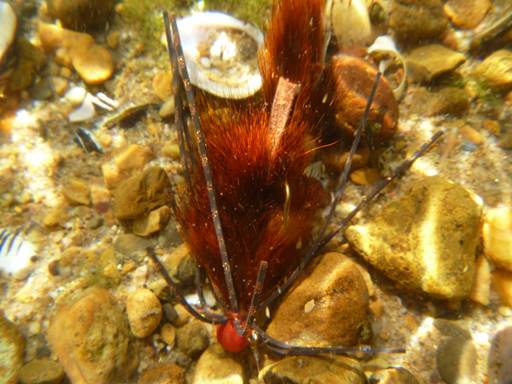
Materials:
- Size 4 sickle roundhead jig hook 1/32 oz
- Orange pine squirrel zonkers
- Orange bucktail
- UTC thread 140 Rusty Brown
- Skirting material
You can paint the lead head, or leave it plain; the fish don't seem to have a preference. If using a lead jig is not appealing to you, try tying it clouser style with a streamer hook and dumbbell eyes. Ron Stephens' technique of using a 60 degree jig hook (with a dumbbell or slotted bead) would also be an option instead of the lead jig (Jig Hook Crawdad, FOTW August 16, 2010). Jig or clouser style both allow for the hook point to ride "up", resulting in less hang ups for this bottom bumping fly.
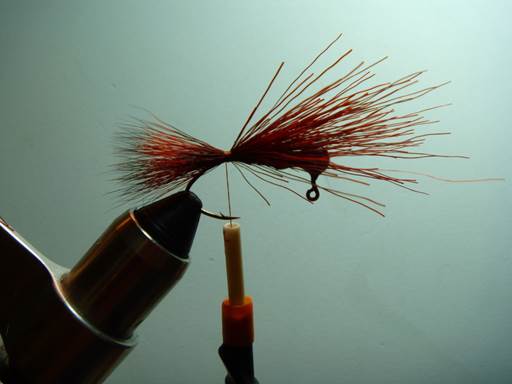
Start the thread, stack a pinch of bucktail and tie in toward the back of the hook.
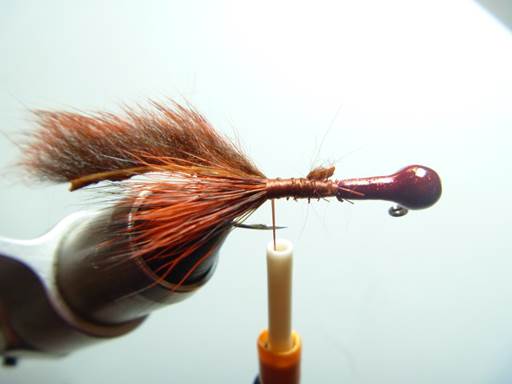
Trim the bucktail and tie in your first claw, a small piece of squirrel zonker. Shoot for an overall length on 1 3/4" to 2 inches.
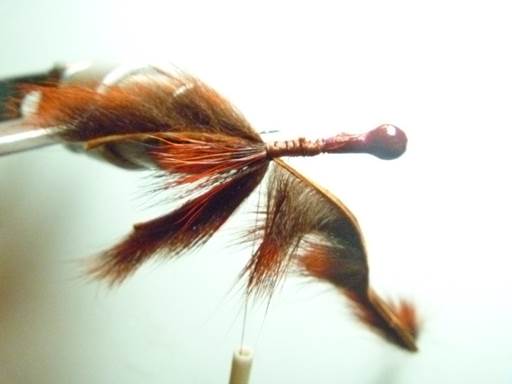
Now tie in a long strip of zonker on the opposite side of the hook (your second claw) and wrap the zonker toward the hook eye. Moistening the fur as you turn aids this greatly.
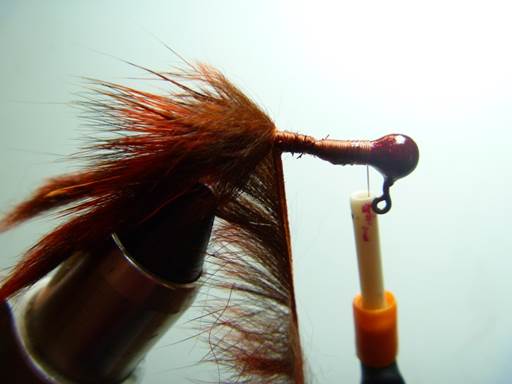
Wrap the zonker to the head.
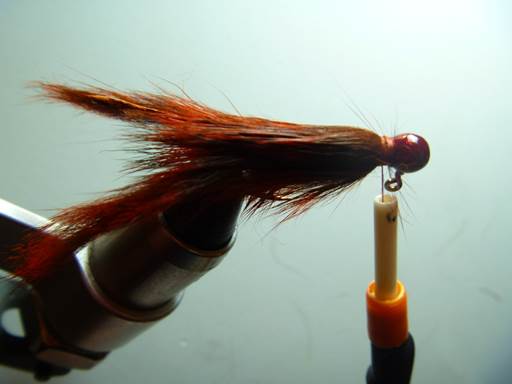
Tie in the zonker and trim the tag end.
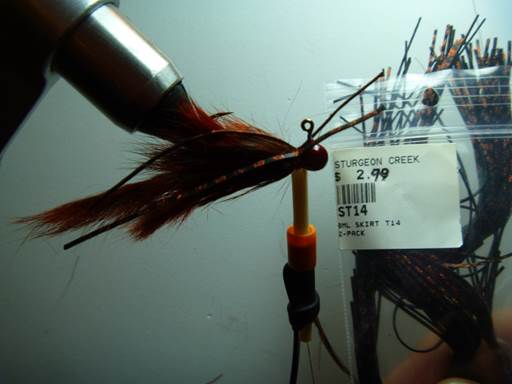
Use skirting material to tie in six "legs" evenly spaced around the collar, allowing them to stick out as shown.
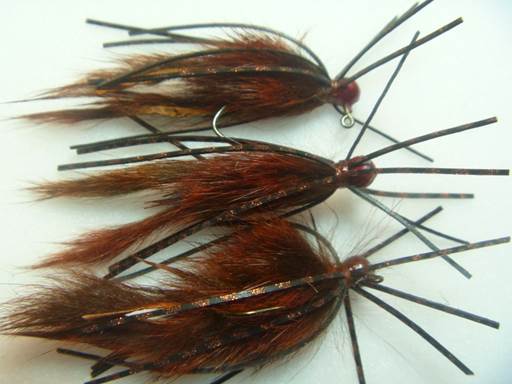
Whip finish and glue the collar with head cement.
I like this craw pattern because it is easy to tie, inexpensive, and, most importantly, catches fish for me. I find the fly effective fished like a streamer with short strips or, my favorite, place it under an indicator and drift it through the deep runs.
For more great info, check out:
Beginning Fly Tying | Intermediate Fly Tying | Advanced Fly Tying.
